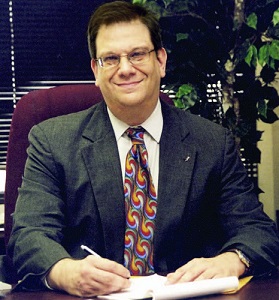September 2017, Vol. 244, No. 9
Editor's Notebook
Opposition to Pipeline Construction Projects Nothing New

Isn’t it interesting that no matter how much changes in the our industry, certain things are designed to never change.
One of the first major conferences I covered was the 13th Annual Arthur Andersen Oil & Gas Symposium held in Houston in December 1992. Arthur Andersen held one of the most influential energy conferences until the Justice Department put the Big 6 accounting firm out of business in 2002 in the aftermath of the Enron scandal.
At this symposium, Gene Pokorny, chairman of Cambridge Reports/Research International, addressed Great Expectations: American Views about Energy, the Environment & the Economy. His comments were so profound that they are worth looking at 25 years later.
Pokorny identified some key points that his team discovered in its latest consumer and public opinion research. Read them and decide for yourself if it is relevant today, maybe even more so.
- Over the last few years a sea change in American environmental attitudes has occurred. Not only are Americans dramatically more concerned about a wide range of environmental issues than just a few years ago, but “environmental protection” has become increasingly “environmental self-protection.” Environmental protection has become a fundamental, a basic, core American value. It will be far less likely than it has been in the past to be traded off for other core values – like family economic security – even in times of economic downturn and uncertainty.
- A significant and growing number of Americans are becoming “Green Consumers” in their buying behavior and “Green Voters” in their political activity. This “Green” segment of the overall population is higher educated and has generally higher income. Thus, it speaks loudly in the economic marketplace and the political arena – in some sense, its sets a good deal of the agenda for both. Pokorny said these numbers reveal the consistent, dramatic changes seen from 1989-1992. “These changes took place at the same time our economy was slipping into and experiencing a recession. While economic difficulties may slow down for awhile, some changes occurring in the environmental attitudes and behaviors, it clearly appears not to stop them.”
- Fossil fuels in general are now seen by many Americans to be dangerous to use by society because of their perceived negative environmental side effects. These perceptions are particularly strong for oil and coal, significantly less for natural gas, which is seen generally to be the “best” of the fossil fuels’ “bad lot.”
“In the earlier oil crises (1970s and early ’80s), Americans were negative about oil companies but liked oil. Here in the 1990s, the problem is not just oil companies, but the product itself: oil.
Oil is increasingly becoming for many Americans a kind of four-letter word – they know they can’t live without it; they know they’re dependent upon it. Yet they worry about the environmental consequences of its usage and resent their very dependency upon it,” Pokorny said.
One question the researchers asked in 1985 and again in 1992 was “When developing new energy sources, should the nation’s primary consideration be protecting the environment, or should it be making sure we have sufficient energy supply?” In 1985, 35% put the environment first, 21% said energy supply and 38% said both. In 1992, 68% listed environment first, 15% said energy supply and 13% said both.
It all leads to a simple overarching conclusion, Pokorny said. “We firmly believe that fundamental changes have taken and are taking place in American environmental values, beliefs and opinions. It is not hype, a passing fancy or a media event, though sometimes it has the aspects of all that, too. Whether we like it or not, it is real.”
The study was done after the March 24, 1989 Exxon Valdez disaster that gave the oil industry a punch from which it has never recovered. Industry supporters might suggest that event biased the survey. Perhaps the results indicate a trend that says otherwise, and paint a picture of the growing challenges we face today to build more badly needed infrastructure.





Comments